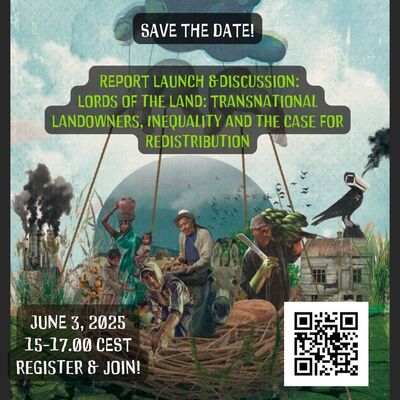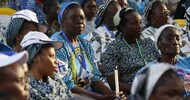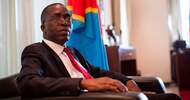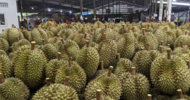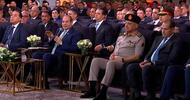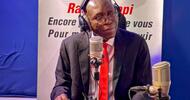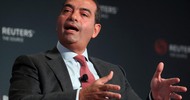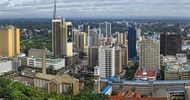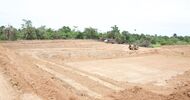Victimes de Ndiaël (Senhuile-Senéthanol)
Recueil de témoignages des victimes du projet Senhuile-Senéthanol dans les villages de Ndiaël, au Sénégal. Vidéo produite par Thierno Sall et Laure Diallo pour Enda Pronat (http://www.endapronat.org/) en avril 2013.Transcript in English
VICTIMS OF NDIAEL
Testimonies of victims of the Senhuile-Senethanol project
(song: "400 years later, they have come back. They want our lands for their own profits....)
The Senhuile-Senethanol project aims to produce biofuels for Europe from sunflowers. The Senegalese state leased the company 26,000 ha in the Ndiael wildlife reserve, where 37 villages and 100,000 livestock live.
("...They colonise us. They use us. They came for us like slaves in the fields.")
Daouda Diop, farmer, Diawar village: "The Senhuile project, people explain it differently. As you know, the project first took off in Fouta, in the rural community of Fanaye. There, the people rejected it. After that, there was a political move. The PDS, the party of former President Abdoulaye Wade, welcomed the project. There was a protected forest. The president declassified the forest in order to give it to Senhuile. That is why people say that Senhuile offers enormous benefits to the state. For example, that it will provide electricity. But at some point, people realised that what's behind the project is just an agribusiness drive."
Ardo Sow, member of the Ndiael Farmer-Herders Collective: "Senhuile is a company that is 51% owned by Tampieri Financial Group of Italy and 49% "owned" by Senegalese. We don't know if those people are just fronts. Because right now, our government is trying to facilitate access to our lands by investors and sometimes they use the names of Senegalese. That is how the Senethanol group came into Senegal. The government of Abdoulaye Wade, in cahoots with the rural community and some rural councilors of Fanaye, gave them 26,000 ha in the area -- an area where farmers and herders live. The herders revolted. No one consulted them in the deliberations."
Salif Diallo, young herder, Guilado 2 village: "The project has surrounded us. We have nowhere to take the animals. Our herds have no more grass to graze. The animals are all we have, our only wealth. The project has destroyed a lot here. We can't go out any more. We call on people who can to help us, it's really hard. We're even prohibited from going where we used to take the animals to drink."
Rougui Sow, villager from Kadoudef: "Ever since the project has come, we don't live in peace. If we go out, the gendarmes stop us. Our goats have no more grounds to graze. We have no more herding routes. We only have these wells left and they want to remove those, too. If they take the wells, we will have nowhere to go for water. If the project stays here, we will be obliged to leave our village."
Amadou Ba, villager from Kadoudef: "Senhuile is the source of our problems. Ever since they started talking about it, the project has brought nothing but trouble. Right now, our big worry is that they say they will take away our wells. Soon, the gendarmes will come. Even when the children go near the project area, the gendarmes handcuff them. We thought that the role of the police was not to protect the project, but to protect the people. We suffer with these police. Instead of protecting us, they protect the project."
Wouri Daillo, Njurki village chief: "This project came just to impoverish us. We have shouted everywhere, but no one listens. The police threaten us, sometimes they beat us. Some herders were even beaten and thrown into the street by the gendarmes. There have been several fights here between herders and gendarmes. We almost feel like we're not a part of this country any more. No one pays attention to us. No one cares. We are shouting at the top of our lungs and we urge the president of the country to listen to us. We say he is responsible for all this. We went several times to see him, but nothing has been done to stop this project. Every day we cry. None of us agrees with this project. And yet everyone is against us. The prefect is against us. The governor is against us. The brigade commander is against us. We are alone in this battle."
Dieynaba Alpha Omar Sow, villager from Alhamdou Njurki 2: "Us, they beat us. They handcuff us. We have no more grazing routes. We can't even go collect fruits in the forest any more We're surrounded by the project. Our life has been thrown upside down by this project. We're against the project. They can beat us because they are stronger than us. They can even kill us. But we will never agree with this project. We ask for help. We cannot accept the project because we have no land to graze our animals. How can anyone agree with this project? Our herds have nowhere to go, our children have no grounds to play on. We can't even go to the forest to collect firewood any more because of the gendarmes. That is what we suffer. You think we are sick? We are not sick. But this project is making us sick. They tell us they will destroy the mosque, the school and the cemetery That is difficult, that is really difficult."
Yora Diao, farmer, Ross-Béthio: "We did not see Macky or Arouna Dia, but what they have done is in contradiction with what they promised us. That is why the people are angry at them. We take our suffering with patience. We don't have the means to resist the project. All we can do is cry. We will continue crying to show that we are against this project. Even the jobs that they talk about, those are just for temporary labourers to collect wood. What they are paid is not enough to live on. They work 2 weeks, then they rest 2 weeks. If that is how this country is supposed to develop, then it will never develop."
Ardo Sow, member of the Ndiael Farmer-Herders Collective: "They came, cleared the land and set up the Senhuile-Senethanol project. At first, the villagers formed a collective together between the rural communities of Ronkh, Diama and Ross-Béthio to fight the Senhuile-Senethanol project together. But since the project is led by a big company, with lots of money, lobby power and political support, they managed to divide the communities in the area."
Produced by Thierno Sall and Laure Diallo
(singer: "They use our lands without the right to do so, what shall we do? Africa says no! It's time to sound the alert, this has to stop! My land, my life!")
Edited by Thierno Sall
Enda Pronat, April 2013


